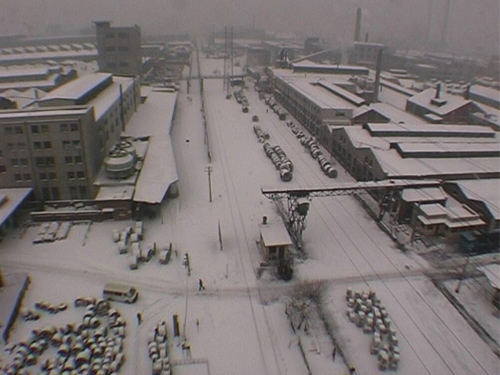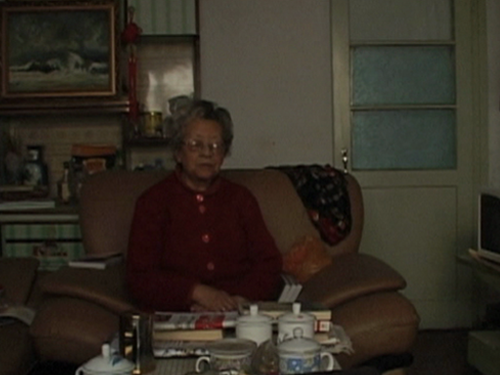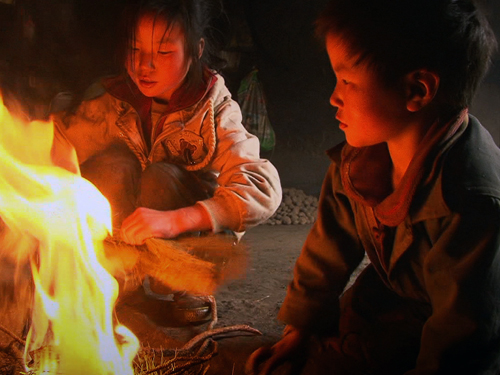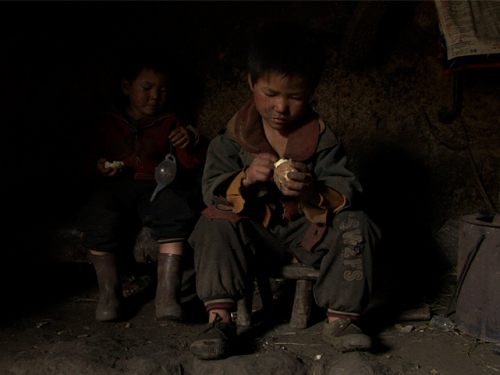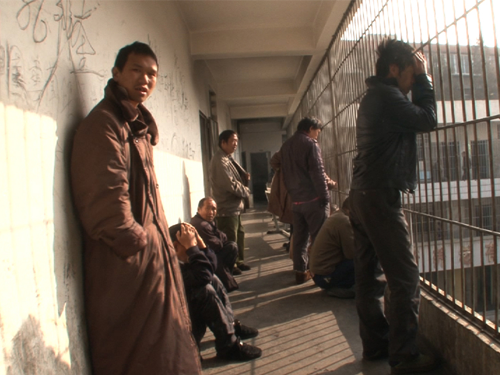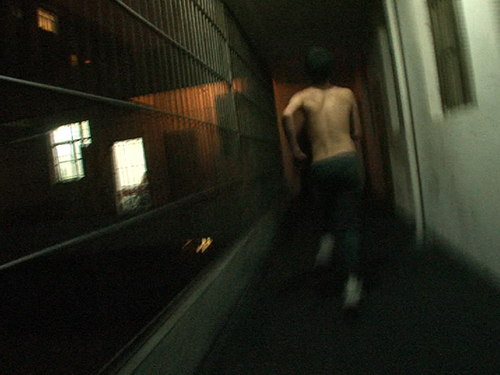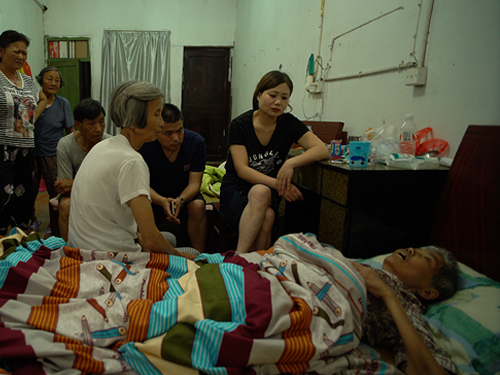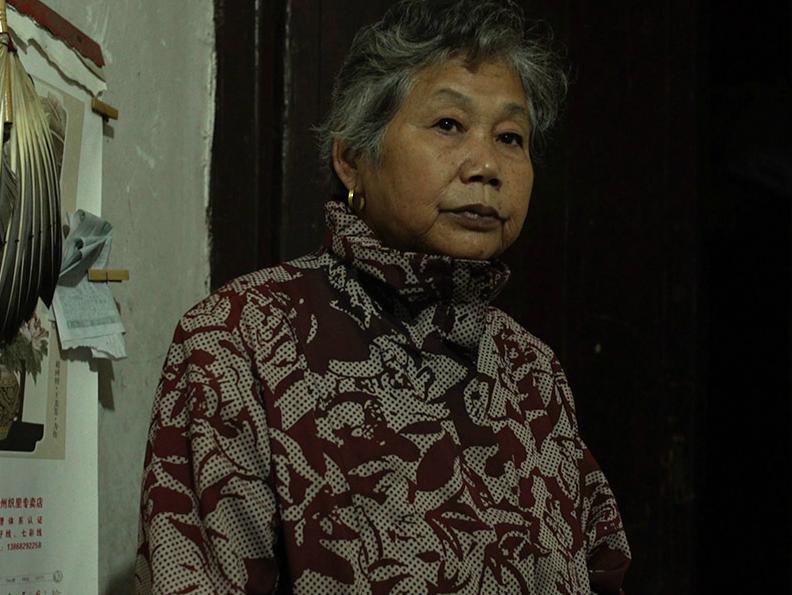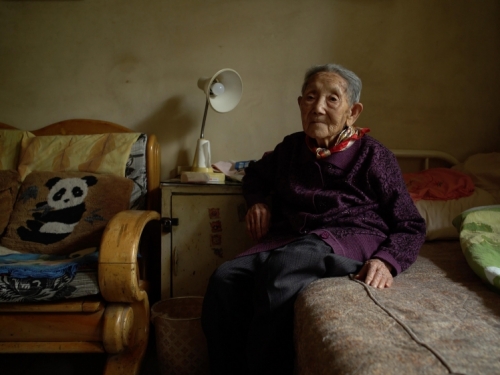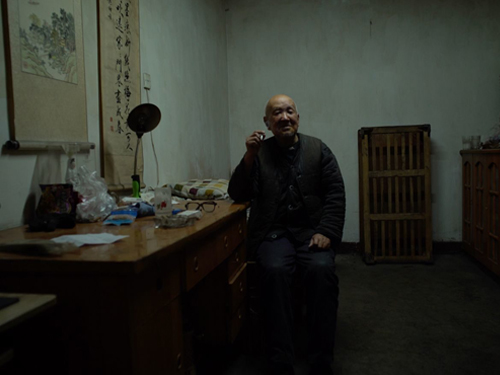Wang Bing
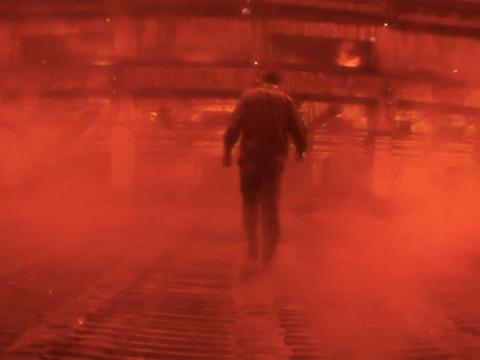
Interview with Wang Bing
Wang Bing about Fengming: A Chinese Memoir
Wang Bing’s Three Sisters
Wang Bing on ’Til Madness Do Us Part and Three Sisters
Wang Bing about Feng ai [’Til Madness Do Us Part]
Wang Bing about Ta’ang and Bitter Money
Wang Bing about Mrs. Fang
Director’s Statement
Wang Bing about Dead Souls
At the turn of this century, Wang Bing entered film history when he boarded a freight train with a small rented DV camera and started filming the snowy landscapes of the industrial district of Tiexi in northeastern China. For the following two years, the former photography and art student documented the decline of the district’s state-owned factories, tirelessly following the remaining workers in the corridors and expanses of the complexes. Out of the three hundred hours of footage, he created the monumental Tiexi qu [West of the Tracks] (2002): a three-part, nine-hour document of China’s transition from state-run to free market economy, and the ensuing desolation of the working class that makes way for an expansion of cheap and precarious labour. From then on out, Wang Bing has continued to chronicle the everyday lives of those who find themselves on the margins of society amidst the vast and rapidly changing landscapes of 21st-century China, unveiling what all too often remains invisible under the guise of its “growth miracle” and its wilful cancellation of historical memory.
Driven by an unceasing desire to film and to discover, Wang Bing never ceases to explore new places and situations, allowing himself to be led by chance encounters. From the Tiexi district, he moved his centre of activity towards the northwestern regions of China. In the Gobi Desert, he worked for several years in secret on Jiabiangou [The Ditch] (2010), his only fiction feature to date, which recounts the struggles to survive in Jiabiangou, one of the labour camps that were in use during Mao Zedong’s Anti-Rightist Movement in the years from 1957 to 1961. More south-west, in the province of Yunnan, he documented the lives of a broken, impoverished farmer’s family in a small mountain village in San zimei [Three Sisters] (2012) and the inmates of a decrepit mental hospital in Feng ai [’Til Madness Do Us Part] (2013), before following refugee families fleeing the ongoing civil war in Myanmar in Ta’ang (2016) and travelling with migrant garment workers to the southeastern city of Huzhou in Ku Qian [Bitter Money] (2016). Within this internal geography, long-term projects are alternated with more modest but no less powerful ones. During the preparations for The Ditch, Wang Bing recorded in barely one take He Fengming’s startling testimony of the persecutions that she and her family endured throughout the Anti-Rightist Movement and the Cultural Revolution. While filming Three Sisters, he met two adolescent boys whose daily experience of ennui and repetition in a cramped factory-owned hut he captured in a handful of fixed long shots. And in the course of documenting Huzhou’s urban world of sleepless sweatshops and labourers, Wang Bing spent a week along the desolate shores of the Yangtze River in order to film the last days of Mrs. Fang before she passed away.
From the brutal conditions of modern-day slavery to the barren vestiges of disappearing histories, from youngsters squandering their time to elderly in the face of death, from the industrious to the recumbent, the striking oppositions and reversals in Wang Bing’s work are also accompanied by a common perseverance: a determination to extricate from the core of exhaustion the ultimate fragments of the possible. Carefully navigating his camera through the encountered spaces, respectfully juggling the balance between distance and proximity, he patiently searches to capture the actuality and capacity of people who could be identified as seeming to experience little more than ‘bare life’. Instead of enclosing those ignored by the radar of History in a confined framework that supposedly befits their miniscule lives, he chooses to give them time to exist, opening up their lifeworld in order to affirm how their bodies, voices and gestures, too, have a story to tell.
This collection of texts and interviews appeared originally as the publication Wang Bing. Filming a Land in Flux, compiled, edited and published by Sabzian, Courtisane and CINEMATEK. For the online publication, an interview with Wang Bing was added, conducted by Emmanuel Burdeau in 2018 on his latest film, Dead Souls. This Dossier aims to trace Wang Bing’s trajectory by way of a series of writings and interviews that were published between 2009 and 2018. From Luc Sante’s account of the “panoramic spectacle of progress collapsing” in West of the Tracks to Wang Bing’s written treatment for Past in the Present – now titled Dead Souls (2018), his third film dealing with the history of the Anti-Rightist Movement and its consequences – they accompany the ongoing ventures of a filmmaker who has taken on the invaluable task of weaving a map of this other China, to film the trials and tribulations of a land in flux.
Gerard-Jan Claes (Sabzian) and Stoffel Debuysere (Courtisane)




